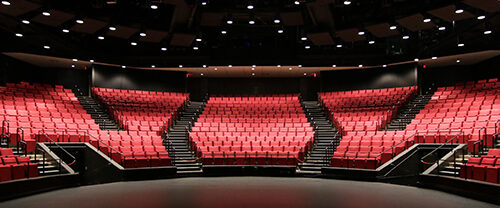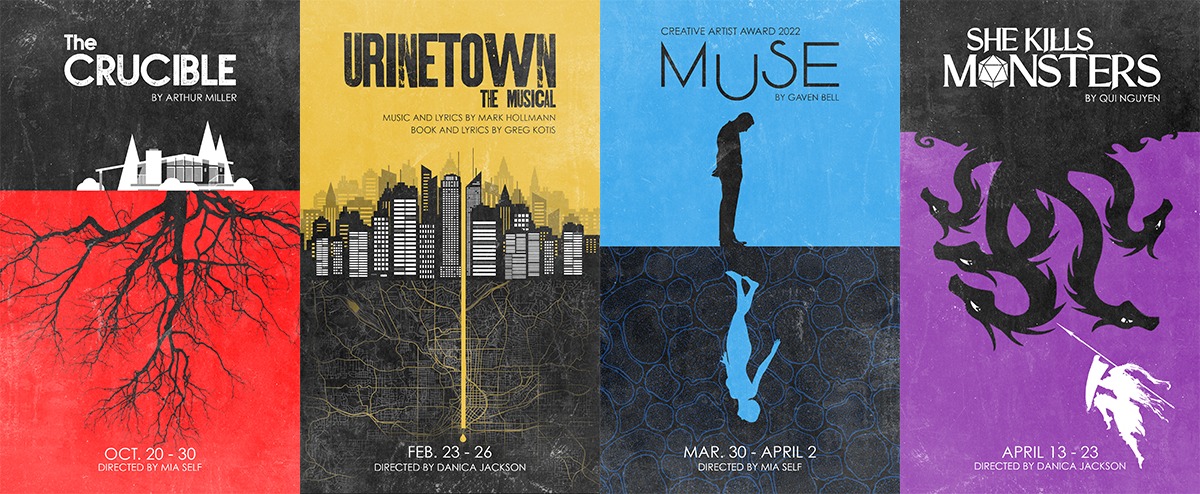Theatre at NC State will be different but remain meaningful.

More information
Theatre is about making connections through live performance. We understand there are extreme physical risks for performers, technicians, and audience members in mounting live productions this fall. These risks also exist in the various processes and activities leading up to opening night which include requiring close physical contact among many people over long periods of time. Theatre at NC State will not be the same this year; therefore there will be no traditional indoor shows this fall. However the mental and social risks of not providing connection in today’s physically distanced world is also understood. Dr. Brené Brown said this on connection:
I define connection as the energy that exists between people when they feel seen, heard, and valued; when they can give and receive without judgment; and when they derive sustenance and strength from the relationship.
The world needs connection now more than ever and University Theatre shall provide a safe place to connect; a safe place to feel seen, heard and valued. Our mission is to provide a place (virtually or physically) in order to create the energy that exists between people. Therefore, providing programming that engages and connects students in a safe and meaningful way will be the guiding principle for our fall 2020 reactivation.
Engagement
We will focus on content that invites students to actively participate in projects, both virtually and in-person as appropriate.
Opportunities and projects shall include at least one of the following:
- Direct student involvement. This could mean the student fills the role of actor, technician, writer, etc.
- Events that do not include students in the process must allow for direct student interaction. It is not enough for a student to simply watch an event or presentation of non-students without interaction. An example of a successful event: Q&A with presenters, workshops in which students can interact or ask questions. Events in which students are the active participants i.e. presenter/actor/technician will not necessitate student audience participation.
- Hands-on activities, virtual or face-to-face, as appropriate.
Connections
Our projects will place connections first and foremost. We believe connections will be the most lacking aspect to the collegiate experience this fall. Our programming shall reflect the human need to connect to each other, to connect with engaging content, and to connect to the greater world.
Opportunities and projects shall include at least one of the following:
- Content connects with students. Though subjective in nature, University Theatre programing must show that students want to connect with the subject-matter.
- Projects connect students to professionals and/or accomplished theatre practitioners outside of University Theatre.
- Projects connect students to students. Programming needs to provide spaces/activities (physical or virtual) for students to come together with those who share similar interests, particularly in the arts.
Safety
Traditional theatre making requires close physical connection with its participants, more so than traditional university academic classes and activities. The safety and wellbeing for the students and staff of University Theatre must remain paramount. Virtual and/or outdoor events will be the preferred method of programmatic delivery this fall.
- Virtual and/or outdoor events will be the preferred method of UT programmatic delivery this fall.
- Opportunities and projects shall adhere NC State, UNC System, state and local guidelines.
- All virtual events should consult COVID19 toolkit for Virtual Events.
- All in-person events should consult COVID19 toolkit for In-Person Events.
Meaningful
Meaningful, a more subjective term, will be defined by past UT programming benchmarks and, more importantly, by the ability to provide theatrical experiences, connections and learning without sacrificing their core values. For example a performance without a live audience sacrifices the real-time connection between performer and spectator; a core value of live theatre.
- Density of involvement. Our goal is provide at least 50% of a typical semester’s contact hours, number of events, and number of student opportunities.
- Opportunities and projects shall feel meaningful to the producing staff member and the participating student. If the staff member feels the intent or the core value of the event is diminished due to producing within COVID restrictions, the programming should be reconsidered.
Though our fall will be guided by providing programming that engages and connects students in a safe and meaningful way it must also be realistic and responsive to our evolving world. As we move forward this fall, we must all understand that plans can and will change. Let us embrace the nature of our artform, one that is fleeting and momentary. Shows do not last forever and nor should our plans to re-invent the semester. All of our work this fall should ask the question, what happens if we close tomorrow? The answer can be it moves online, it gets pushed to a later date, or it’s over and we move on to something else. Just be able to answer the question, what happens if we close tomorrow? And in answering that question remember this; it is not the work that is important, but rather the people the work connects.
Over the next couple of weeks, University Theatre will begin announcing a rolling list of fall offerings in performance, tech, design, administration, and many other ways in which people connect with the arts.
More information coming soon.
- Categories:

